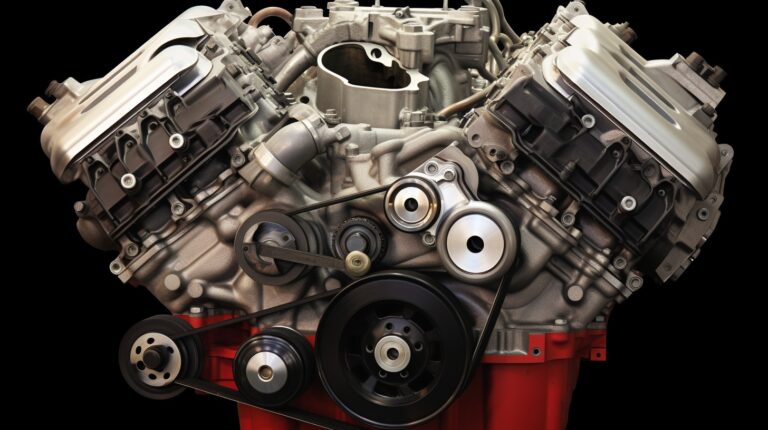The Dodge 4.7L engine, also known as the PowerTech or Magnum, has been a staple in many Dodge, Jeep, and Chrysler vehicles since its debut in 1999. While it was a robust engine for its time, like all engines, it has its share of common issues.
Recognizing and addressing these problems is crucial not only for the longevity of the engine but also for the safety and performance of the vehicle. In this article, we’ll explore some of the prevalent problems faced by the 4.7L engine and provide solutions to tackle them.
Fun Fact: The 4.7L PowerTech engine first made its appearance in the Jeep Grand Cherokee in 1999 and was used in various models up to 2009.
Common Engine Problems
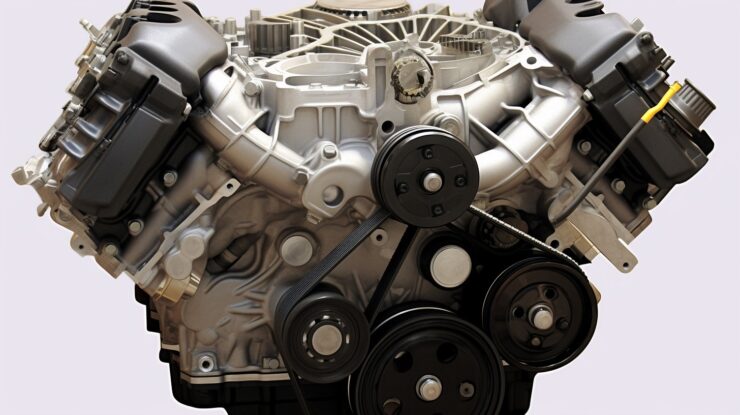
Overheating Issues
- Causes of overheating: The cooling system in the 4.7L Magnum engine consists of various components like the water pump, thermostat, radiator, and cooling fan. Any of these parts can fail, leading to overheating. Radiators and hoses might develop cracks over time, and wear and tear parts are susceptible to potential failure.
- Symptoms to watch for: Overheating, visible coolant leaks, low coolant levels, and steam under the hood are some of the signs that the cooling system might be malfunctioning.
- Prevention and maintenance tips: Regularly inspect the cooling system components for wear and tear. Ensure that the coolant levels are adequate and replace any parts that show signs of aging or damage.
- Solutions to address overheating: If you notice any symptoms of cooling system failure, it’s essential to address them immediately. Depending on the failed component, repairs might range from replacing a hose to changing the entire radiator. It’s always a good idea to check other parts in the area when addressing a specific issue.
Pro Tip: If you notice your engine overheating, pull over and shut off the engine immediately. Overheating can lead to more severe problems like head gasket failure.
Oil Consumption Problems
- Factors leading to excessive oil consumption: One of the common issues with the 4.7L PowerTech engine is valve cover leaks. Over time, the rubber valve cover gaskets can harden and crack, leading to minor oil leaks that can worsen if not addressed.
- Signs of oil consumption issues: Visible oil leaks, burning oil smell, and smoke are indicators of potential valve cover gasket leaks.
- Steps to mitigate oil consumption: Regularly inspect the valve cover gaskets for signs of wear and tear. If you notice any leaks, it’s essential to address them sooner rather than later to prevent potential fire hazards or damage to other components.
- Solutions to reduce oil consumption: Replacing the valve cover gaskets is the primary solution to address oil leaks. While the gaskets themselves are relatively inexpensive, labor costs can add up, especially if both gaskets need replacement.
Fun Fact: Valve cover gasket leaks are especially common in engines with over 100,000 miles. Regular inspections can help catch these leaks early and prevent more significant issues down the road.
Misfiring and Rough Idling
- Reasons behind misfiring and rough idling: Misfiring can be attributed to a variety of causes, including failing valve seats, worn spark plugs, or faulty ignition coils. The Dodge 4.7L V8 engine’s valve seats, in particular, can fail, leading to a loss of pressure in the combustion chamber, causing the engine to sputter and lose power.
- Indicators of these issues: Symptoms of misfiring include a noticeable loss of engine power, reduced fuel efficiency, and the engine light coming on. Rough idling might manifest as vibrations or inconsistent RPMs when the vehicle is stationary.
- Strategies for diagnosing misfiring: Using diagnostic tools can help pinpoint the exact cause of misfiring. Regular inspections and listening for unusual sounds can also aid in early detection.
- Solutions for resolving misfiring and rough idling: Depending on the root cause, solutions might involve replacing the faulty valve seats, changing worn-out spark plugs, or addressing ignition coil issues.
Pro Tip: Regularly checking and replacing spark plugs can prevent many misfiring issues. A simple spark plug change can make a significant difference in engine performance.
Timing Chain and Tensioner Failures
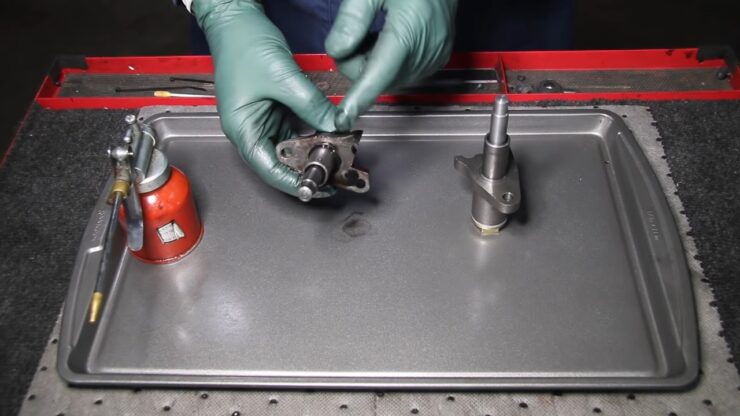
- Causes of timing chain and tensioner problems: The timing chain ensures that the engine’s valves open and close at the correct times. Over time, the chain can wear out or stretch, leading to performance issues. Similarly, tensioners, which maintain the right tension on the chain, can fail, causing the chain to slacken.
- Warning signs of these failures: A rattling noise from the engine, especially during startup, can indicate a timing chain issue. Performance issues and the engine light coming on are other signs to watch for.
- Importance of timely repair: A faulty timing chain can lead to severe engine damage if not addressed promptly. It can cause the valves to open and close out of sync, leading to engine misfires or even catastrophic engine failure.
- Solutions to address timing chain and tensioner issues: Replacing the timing chain and tensioners is the primary solution. It’s a labor-intensive task, so it’s advisable to consult a professional mechanic.
Fun Fact: The timing chain is designed to last the lifetime of the engine, but like all parts, it’s susceptible to wear and tear, especially if the vehicle isn’t maintained properly.
Transmission Issues
- Common transmission problems in Dodge 4.7 engines: While the article didn’t specify transmission issues related to the 4.7L engine, it’s common for vehicles to experience issues like slipping gears, delayed shifts, or transmission fluid leaks over time.
- Signs of transmission trouble: Difficulty in shifting gears, unusual noises when changing gears, or a burning smell can indicate transmission problems.
- Maintenance practices to prevent transmission problems: Regularly checking and replacing transmission fluid can prevent many transmission-related issues. It’s also essential to avoid towing weights beyond the vehicle’s capacity, as this can strain the transmission.
- Repair options for transmission issues: Depending on the problem, solutions might range from changing the transmission fluid to overhauling or replacing the entire transmission system.
Pro Tip: Using the right type of transmission fluid specified for your vehicle can extend the life of your transmission and improve its performance.
Diagnostic and Maintenance Tips
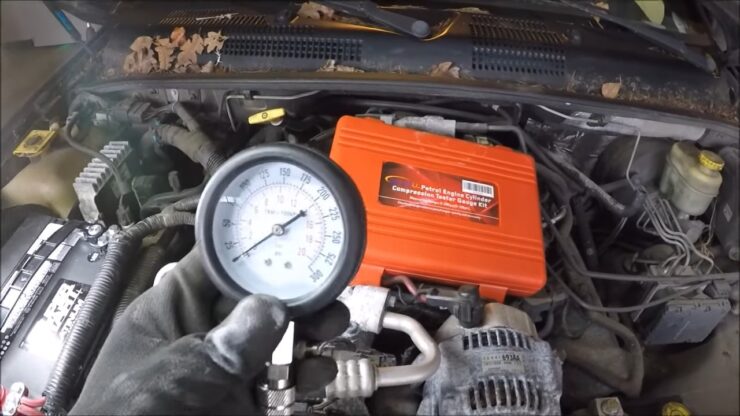
Regular Maintenance Schedule
- Importance of routine maintenance: The longevity and performance of the Dodge 4.7L engine largely depend on regular maintenance. Adhering to a consistent maintenance schedule ensures that the engine runs smoothly and potential issues are detected early.
- Recommended maintenance intervals: While specific intervals can vary based on driving conditions and habits, a general guideline is to change the oil every 3,000 miles or every 3 months, especially if you undertake a lot of short driving trips. This is particularly crucial in cold weather when the engine takes longer to heat up.
- DIY maintenance vs. professional servicing: While some basic maintenance tasks, like oil changes, can be done at home, it’s essential to consult professionals for more intricate tasks. They have the expertise and tools to diagnose and address potential issues accurately.
Pro Tip: Using full synthetic oil can help prevent sludge build-up. Even though synthetic oil is designed for longer intervals, changing it every 3,000 miles can be a preventive measure against potential engine problems.
Using Diagnostic Tools
- Benefits of diagnostic tools: Diagnostic tools offer a quick and efficient way to pinpoint specific engine issues. They read the engine’s error codes, providing insights into potential problems that might not be immediately apparent.
- Popular diagnostic tools for Dodge 4.7 engines: While the article doesn’t specify particular tools for the 4.7L engine, OBD-II scanners are universally used for modern vehicles, including Dodge models with the 4.7L engine.
- How to interpret diagnostic codes: Each error code corresponds to a specific engine issue. While some codes might be self-explanatory, others might require a professional’s interpretation or a reference to a code manual.
Fun Fact: OBD stands for “On-Board Diagnostics.” The OBD-II standard, introduced in the mid-1990s, provides almost real-time data on vehicle performance, allowing for efficient troubleshooting.
Seeking Professional Help
- When to consult a mechanic: While regular maintenance can prevent many issues, it’s essential to consult a mechanic if you notice unusual noises, reduced performance, or any warning lights on the dashboard.
- Finding a reliable mechanic: Look for mechanics with good reviews and recommendations. Certifications, like those from the National Institute for Automotive Service Excellence (ASE), can also indicate a mechanic’s expertise.
- Importance of accurate diagnosis: An accurate diagnosis ensures that the root cause of an issue is addressed, preventing further complications and potential damage.
Pro Tip: Always get a second opinion if you’re unsure about a diagnosis or the cost of repairs. It can save you money and ensure your vehicle gets the right treatment.
Preventive Measures
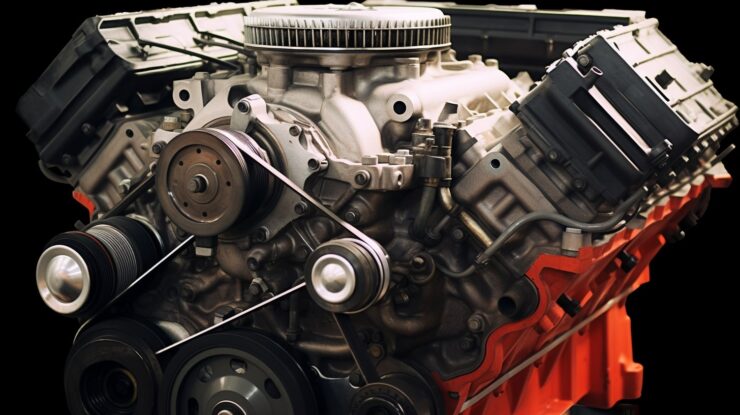
Proper Engine Care
- Regular oil changes: Changing the engine oil at recommended intervals ensures that the engine remains lubricated and free from sludge build-up.
- Cooling system maintenance: Regularly inspecting the cooling system and replacing worn-out components can prevent overheating issues.
- Fuel system cleaning: Cleaning the fuel system can improve fuel efficiency and overall engine performance.
- Air filter replacement: A clean air filter ensures that the engine gets a steady supply of clean air, which is crucial for efficient combustion.
Fun Fact: A clogged air filter can reduce fuel efficiency by up to 10%.
Driving Habits
- How driving habits affect engine health: Aggressive driving, frequent short trips, and towing beyond the vehicle’s capacity can strain the engine and reduce its lifespan.
- Tips for responsible driving: Avoid rapid acceleration and deceleration. Allow the engine to warm up before driving, especially in cold weather.
- Avoiding aggressive driving: Smooth and steady driving not only improves fuel efficiency but also reduces wear and tear on the engine.
Pro Tip: Using cruise control on highways can help maintain a steady speed, reducing engine strain and improving fuel efficiency.
FAQ
Why is my Dodge 4.7 engine making a tickling sound?
A tickling sound can be quite concerning. One common reason for this sound is a low oil level or inadequate lubrication. Another potential cause is a loose connection between the valve and piston. It’s advisable to warm up the engine before use and, if the sound persists, consult an expert mechanic to diagnose the exact cause and apply the appropriate solution.
What causes oil foaming in the Dodge 4.7 engine?
Oil foaming occurs when air mixes with the engine’s oil, leading to froth formation at the bottom of the oil pan rather than at the top. Several factors can contribute to this issue. A broken or worn-out valve cover gasket can allow air to infiltrate. Additionally, failing to warm up the engine, especially in high humidity conditions, can lead to air bubbles.
How can I prevent oil sludge buildup in my Dodge 4.7 engine?
Oil sludge buildup can significantly hamper performance. It occurs when the oil thickens, leading to reduced performance and an unnecessarily high RPM. Several factors can contribute to this, including problems with the filling plug, worn-out gasket lid, the use of low-quality oils, and faulty PCV valves. To prevent oil sludge buildup, consider using low-weight synthetic oils. Regularly consult a mechanic to inspect the oil pan and determine the best oil replacements. Replacing faulty PCV valves can also help in preventing this issue.
How do I know if the valve seats in my Dodge 4.7 engine are failing?
Valve seat failure can lead to a loss of pressure in the combustion chamber, resulting in reduced engine power and fuel efficiency. If only one or two cylinders are affected, the impact might be negligible. However, as more cylinders get affected, the poor compression becomes more noticeable. Overheating, which can result from a cooling system failure, is a common cause of valve seat failure. If you suspect failing valve seats, it’s crucial to seek an immediate replacement. While they can be expensive, especially if a new cylinder installation is required, addressing the issue promptly can prevent more severe problems.
What should I do if the “check engine” light comes on in my Dodge vehicle with a 4.7 engine?
The “check engine” light is a vital indicator that there might be an issue. While it can be tempting to ignore it, especially if the vehicle seems to be running fine, it’s essential not to. The light can indicate a range of problems, some of which might be interrelated and can lead to more severe issues if not addressed. If the “check engine” light comes on, it’s advisable to consult a mechanic or use a diagnostic tool to read the engine’s error codes. This will provide insights into the potential problem, allowing for timely intervention and repairs.
Final Thoughts
The Dodge 4.7 engine, like any mechanical component, has its set of challenges. However, with proper knowledge, regular maintenance, and timely interventions, many of these issues can be mitigated or even prevented.
As Dodgeowners, it’s crucial to be proactive, stay informed, and seek expert advice when needed. By doing so, you can ensure the longevity and optimal performance giving you a smooth and reliable driving experience.
Related Posts:
- Your Guide to Toyota Trucks: Models, Years, and…
- Common Toyota Blind Spot Monitor Problems with Easy…
- 9 Common Toyota Softex Problems & Solutions: For a…
- 6 Common Toyota Tundra Leveling Kit Problems 2024 -…
- Common Lexus RX300 Transmission Problems with Easy…
- Toyota 2.4 Engine Problems & Easy Solutions - Keep…

